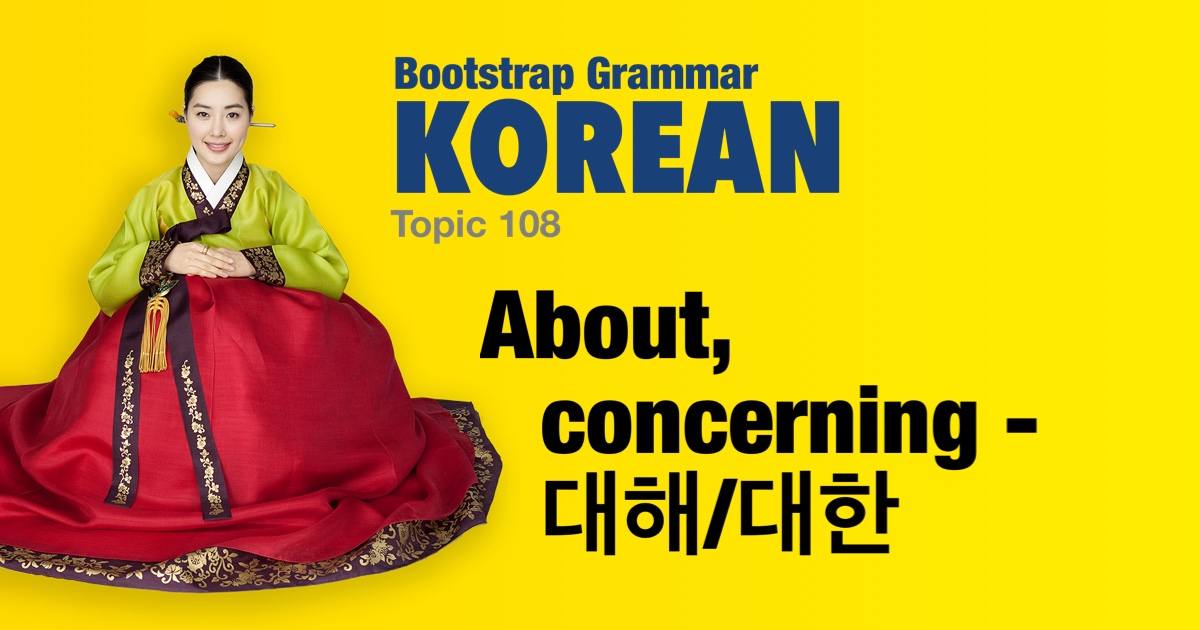Korean grammar - About, concerning - 대해/대한 |
|||
|
|||
The pattern 에 대해/대한 is used to mark that a noun is what is being talked, written, thought (etc) about. It can be followed by either a noun (eg. 'the book about the war') or a verb (eg. 'to talk about the war'). • Noun + 에 대한 + Noun • Noun + 에 대해(서) + Verb. The 서 is optional. In these patterns 관 can be used in place of 대. |
| Examples: | |
|
우리는 오늘 숙제에 대해서 말하고 있어요.
We are talking about today's homework.
|
|
|
저는 한국 문화에 대해서 많이 알아요.
I know a lot about Korean culture.
|
|
|
저는 한국 음식에 대해 잘 몰라요.
I don't know much about Korean food.
|
|
|
이 문법에 대해 다시 설명해 주세요.
Please explain about this grammar point again.
|
|
|
그 책은 무엇에 대한 책이에요?
What is the book about?
|
|
|
한국 문화에 대한 책이에요.
It is a book about Korean culture.
|
|
|
북한에 대한 뉴스를 읽었어요?
Did (you) read the news about North Korea?
|
|
|
민혁이에 대한 소문을 들었어요?
Did (you) hear the rumour about Minhyuk?
|
|
|
공주에 대한 이야기를 하고 싶어요.
(I) want to tell you the story about a princess.
|
|
|
외국어를 빨리 배우는 법에 대해서 글을 쓰고 있어요.
(I) am writing about the way to learn a foreign language quickly.
|
|
|
그 사건에 대한 뉴스를 듣고 몹시 충격을 받았어요.
(I) was very shocked to hear the news about the incident.
|
|
|
그녀는 지금 무엇에 대해 이야기하고 있어요?
What is she talking about now?
|
|
|
선생님, 이 문법에 대해 다시 설명해 주세요.
Teacher, please explain this (point of) grammar again.
|
|
|
민혁에 대한 소문을 들었어요?
Did you hear the rumours about Minhyuk?
|
|
|
저는 한국에서 제 자신에 대해 많이 배웠어요.
I learned a lot about myself in Korea.
|
|
|
가족에 대해 생각했어요.
(I) thought about (my) family. |
|
|
한국역사에 대한 영화를 봤어요.
(I) saw a movie about Korean history.
|
|
|
이 문제에 관련하여 회의가 있을 거예요.
There will be a meeting about this matter. |
|
|
태극기에 관한 이야기를 했어요.
We talked about taegeukgi (the Korean flag).
|
|
|
저는 음식에 대한 책을 읽었어요.
I read a book about food. |
|
 |
|


 Verb form
Verb form
